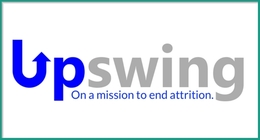
There are a few companies out there which are already trying to implement analytics solutions for their schools. Though higher ed data analytics is in its nascent stages, the studies that have been done reaffirm some long-held notions in education but also shed light on some surprising insights as well. The company InsideTrack uses collected data to generate leads for prospective students and provides schools with conversion rates within periods of six months, nine months and 12 months. This is a marketing-based methodology which seeks to find cost efficiency in enrollment efforts for schools, but is not quite focused on retention strategy.
A CPCC case study collected demographic information (such as age, GPA, gender, ethnicity) on the students using Blackboard Analytics. This method of organizing the data created an easier path to addressing certain students with situational needs and better tailoring the solutions for them. For example, in one school a large barrier to completion was that students were unable to take certain required classes because of full enrollment. With enrollment data analyzed for multiple years, administrators were able to glean which classes were consistently overenrolled and offer more sections to students to alleviate this problem. One university found that retention was higher among students who visited the recreational center more often- they used this data to justify allocating a larger portion of the budget to building a larger gym. These are just some of the uses data may have in college retention.
Predictive analytics is a branch of data manipulation which allows for researchers to extrapolate hypotheses using past collected information. This has extremely salient implications in higher ed retention- students who are struggling can utilize support methods to get back on track. This would replace the current system of "fail first, ask later", which has been the default approach in the past. A study conducted at Paul Smith's College analyzed the efficacy of an "Early Alert" program, which surveyed students four weeks into the semester- however, with tools available today, "early alerts" could be as early as after 8 class meetings, or even sooner. Studies have shown that using certain data points can determine with a strong degree of accuracy whether students will pass a class after just two weeks from the start of the semester.
All schools which have deployed data analytics programs have seen a boost in success, persistence, and graduation rates of students. Uses include determining which academic majors hold the most promise for career-focused individuals and increasing awareness of them; this allows for administrations to make educated decisions on faculty hires as well. If that isn't enough incentive for schools to get onboard, the potential financial benefits and accreditation points earned by implementing such programs should do the trick.
Of course, there need to be standards for how predictive analytics will be employed and monitored. The data must be consistently collected and analyzed at measured periods. The very nature of big data is overwhelming, so it needs to be packaged into actionable insights for it to be useful to school administrators. One of the major criticisms of current data analytics programs is that they provide information without action.
Upswing, an Austin-based edtech company, takes a dual-sided approach to combatting attrition. At the forefront, it provides an online tutoring platform to the students at its partner institutions which can be accessed 24 hours, 7 days a week. Behind the scenes, Upswing provides schools with personal Higher Education Retention Officers (HEROs) to make sure the data collected through these tutoring sessions will directly affect change. With five partner schools for the fall semester, Upswing is rapidly growing in the community college sector to provide cutting-edge analytics along with student support to boost retention. To learn more about Upswing, visit www.upswing.io.
About the Author:
Neha Madhusoodanan is Marketing Lead at Upswing, an Austin-based retention company. Follow her educational insights on Twitter and Facebook.












